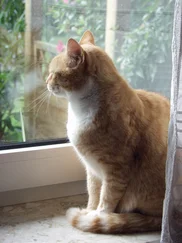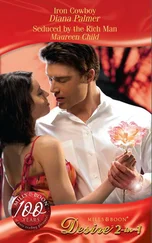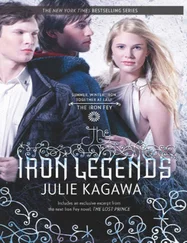'Don't do that, I urge you. I know what I am talking about, I have seen what is happening on the Flats. Stay away till things have gone back to normal.'
'Things will never be normal -'
'Please! I know the argument, I haven't the time or interest to go through it again. Stay here till things are quieter. Stay till you are better. Why did you leave the hospital? Are you discharged?'
'Yes. I am discharged.'
'Whose clothes are you wearing?' 'They are mine.'
'They are not your clothes. Where did you get them?'
'They are mine. A friend brought them to me.'
He was lying. He lied no better than any other fifteen-year-old.
'Sit down. I will give you something to eat, then, you can get some sleep. Wait till morning before you make up your mind what to do next.'
I made tea. He sat down, paying me no attention at all. It did not embarrass him that I did not believe his story. What I believed was of no account. What did he think of me? Did he give me any thought? Was he a thinking person? No: compared with. Bheki he was unthinking, inarticulate, unimaginative. But he was alive and Bheki was dead. The lively about everything, I am written out, bled dry, and still I go on. This letter has become a maze, and I a dog in the maze, scurrying up and down the branches and tunnels, scratching and whining at the same old places, tiring, tired. Why do I not call for help, call to God? Because God cannot help me. God is looking for me but he cannot reach me. God is another dog in another maze. I smell God and God smells me. I am the bitch in her time, God the male. God smells me, he can think of nothing else but finding me and taking me. Up and down the branches he bounds, scratching at the mesh. But he is lost as I am lost.
I dream, but I doubt that it is God I dream of. When. I fall asleep there commences a restless movement of shapes behind my eyelids, shapes without body or form, covered in a haze, grey or brown, sulphurous. Borodino is the word that comes to me in my sleep: a hot summer afternoon on the Russian plain, smoke everywhere, the grass dry and burning, two hosts that have lost all cohesion plodding about, parched, in terror of their lives. Hundreds of thousands of men, faceless, voiceless, dry as bones, trapped on a field of slaughter, repeating night after 'night their back-and-forth march across that scorched plain in the stench of sulphur and blood: a hell into which I plummet when I close my eyes.
I am more than half convinced it is the red pills, Diconal, that call up these armies inside me. But without the red pills I can no longer sleep.
Borodino, Diconal: I stare at the words. Are they anagrams? They look like anagrams. But for what, and in what language?
When I wake out of the Borodino sleep I am calling or crying or coughing with sounds that come from deep in my chest. Then I quieten down, and lie staring about me. My room, my house, my life: too close a rendering to be an imitation: the real thing: I am back: again and again I am back, from the belly of the whale disgorged. A miracle each time, unacknowledged, uncelebrated, unwelcome. Morning after morning I am disgorged, cast up on the shore, given another chance. And what do I do with it? Lie without motion on the sands waiting for the night tide to return, to encircle me, to bear me back into the belly of darkness. Not properly born: a liminal creature, unable to breathe in water, that lacks the courage to leave the sea behind and become a dweller on land.
At the airport, the day you left, you gripped me and stared into my eyes. 'Do not: call me back, Mother,' you said, 'because I will not come.' Then you shook the dust of this country from your feet. You, were right. Nevertheless, there is part of me that is always on the alert, always turned to the north-west, longing to welcome you, embrace you, should you relent and, in whatever form, come visiting. There is something as terrible as it is admirable in that will of yours, in the letters you write in which – let me be candid – there is not enough love, or at least not enough of the loving-yielding that brings love to life. Affectionate, kind, confiding even, full of concern for me, they are nonetheless the letters of someone grown strange, estranged.
Is this an accusation? No, but it is a reproach, a heartfelt reproach. And this long letter – I say it now – is a call into the night, into the north-west, for you to come back to me. Come and bury your head in my lap as a child does, as you used to, your nose burrowing like a mole's for the place you came from. Come, says this letter: do not cut yourself off' from me. My third word.
If you would say you came from me, I would not have to say I came from the belly of the whale.
I cannot live without a child. I cannot die without a child.
What I bear, in your absence, is pain. I produce pain. You are my pain.
Is this an accusation? Yes. J'accuse. I accuse you of abandoning me. I fling this accusation at you, into the north-west, into the teeth of the wind. I fling my pain at you.
Borodino: an anagram for Come back in some language or other. Diconal: I call.
Words vomited up from the belly of the whale, misshapen, mysterious. Daughter.
In the middle of the night I telephoned Lifeline. 'Home deliveries?' said the woman – 'I don't know of anyone who does home deliveries any more except Stuttafords. Would you like to try Meals on Wheels?'
'It is not a question of cooking,' I said. 'I can do my own cooking. I just want the groceries delivered. I am having difficulty carrying things.'
'Give me your number and I'll get a social worker to phone you in the morning,' she said.
I put down the receiver.
The end comes galloping. I had not reckoned that as one goes downhill one goes faster and faster. I thought the whole road could be taken at an amble. Wrong, quite wrong.
There is something degrading about the way it all ends – degrading not only to us but to the idea we have of ourselves, of humankind. People lying in dark bedrooms, in their own mess, helpless. People lying in hedges in the rain. You will not understand this, yet. Vercueil will.
Vercueil has disappeared again, leaving the dog behind. A pity about Vercueil. No Odysseus, no Hermes, perhaps not even a messenger. A circler-around. A ditherer, despite the weatherworn front.
And I? If Vercueil has failed his test, what was mine? Was my test whether I had the courage to incinerate myself in front of the House of Lies? I have gone over that moment a thousand times in my mind, the moment of striking the match when my ears are softly buffeted and I sit astonished and even pleased in the midst of the flames, untouched, my clothes burning without singeing, the flames a cool blue. How
easy to give meaning to one's life, I think with surprise, thinking very fast in the last instant before the eyelashes catch, and the eyebrows, and one no longer sees. Then after that no thought any more, only pain (for nothing comes without its price).
Would the pain be worse than toothache? Than childbirth? Than this hip? Than, childbirth multiplied by two? How many Diconal to mute it? Would it be playing the game to swallow all the Diconal before turning the car down Government Avenue, edging past the chain? Must one die in full knowledge, fully oneself? Must one give birth to one's death without anaesthetic?
The truth is, there was always something false about that impulse, deeply false, no matter to what rage or despair it answered. If dying in bed over weeks and months, in a purgatory of pain and shame, will not save my soul, why should I be saved by dying in two minutes in a pillar of flames? Will the lies stop because a sick old woman kills herself? Whose life will be changed, and how? I go back to Florence, as so often. If Florence were passing by, with Hope at her side and Beauty on her back, would she be impressed by the spectacle? Would she even spare it a glance? A juggler, a clown, an entertainer, Florence would think: not a serious person. And stride on.
Читать дальше












